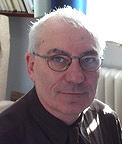Peter Taylor is Emeritus Professor of Geography and Director of the Globalization and World Cities (GaWC) Research Network, He is author of over 300 publications of which 60 plus have been translated into one or more of 23 languages.
Career Highlights
- Awarded an “Honorary Doctorate” by Ghent University in 2008
- Awarded “Honorary Doctorate” by Oulu University in 2006
- Presented with Francqui Medal (Brussels) and University of Ghent Medal in 2005 to mark tenure of the International Inter-university Francqui Chair in 2004-5
- Elected a Fellow of the British Academy, 2004
- Designated for 2003 Distinguished Scholarship Honors by the Association of American Geographers
- Elected an Academician of the Academy of Social Sciences (UK) in 2001
- Founder and Director of Globalization and World Cities (GaWC) Research Network, 1998 - present
- 1994-6 Member of the Gulbenkian Commission on the Future of the Social Sciences
- Held (paid) visiting positions in 11 non-UK universities from 1970 to 2005 (Iowa, Alberta, Clark, Dartmouth, Illinois, Binghamton, Virginia Tech (3 times (including CC Garvin Chair in 2002-3)), Delaware, Paris, Amsterdam, Ghent)
- Founding editor of Political Geography (Quarterly) in 1982 and Review of International Political Economy in 1992
Current Research Interests
I am fascinated by cities. One of my hobbies is ‘to walk great cities’ which I combine with a research curiosity as to what made them ‘great’. I have merged this interest with a quarter century plus of practice as a world-systems analyst to focus on world/global cities in contemporary globalization.
My GaWC-based research can be divided into three closely related themes:
1. Contemporary: world city network
The initial stimulus was the dearth of data on relations between cities. Research on world cities seemed to be unimpeded by this basic deficiency despite these relations being the raison d’etre of cities. From this empiricist concern for an empirically-challenged field of study I came to realise that there could be no simple solution to the problem because meaningful direct measurement of inter-city relations were not forthcoming. Cities had to be theorised and a model created from which indirect measures of inter-city relations could be estimated. This resulted in my creation of the interlocking network model in which advanced producer firms are identified as the network makers by linking cities across the world by their routine work through inter-city office networks.
Using this model the connectivities of cities and the configurations of the network have been measured for 2000 and 2004 (courtesy of ESRC grants) and this work is on-going through an improved methodology in collaboration with KU Leuven..
2. Historical: comparative urban networks and change
The contemporary work stimulated some interesting theoretical and historical questions about the nature of inter-city relations. In particular the question of competition in hierarchies versus mutuality in networks came to the fore. Current literature emphasized the former but GaWC research (especially on London-Frankfurt relations courtesy of an Anglo-German Foundation grant) strongly supported the importance of inter-city communalities. My conclusion was that inter-city relations are inherently cooperative but with hierarchical tendencies so the competition/mutuality is historically contingent. I came to this position from using the work of Jane Jacobs, the only major urban theorist not mesmerised by ‘urban hierarchies’, who convinced me that cities simply come in packs.
Taking Jacobs seriously provides a whole new historical agenda. In particular her ‘urban spurts’ theory of economic expansion is particularly ripe for re-examination in the light of the pathetic record of the ‘development industry’. With Ann Firth, Michael Hoyler, Oli Mould and Dennis Smith, I carried out a large historical project on cities in the modern world-system from the sixteenth century onwards that chronicled ‘urban spurts’ and attempted to explain them (courtesy of a Leverhulme Trust grant).
3. Generic: cities in societal transitions
The move from the empirical to the theoretical is completed by my recent focus on the generic in Jacobs’ work. Cities are in no sense ‘western’ in nature, the work that is done within them straddles all civilizations (as the term suggests). City is a trans-historical concept of social organization that can be found in many different societies; the same can be said of the work done on the behalf of states. I have found Jacobs’ moral syndrome analysis essential here. The commercial and guardian moral syndromes underpin the only two ways of making a living. They are generic concepts that are expressed in more complex societies as city network formation and state territoriality respectively. This has intriguing implications for rethinking societal transitions from the earliest origins of cities and states through to contemporary global dilemmas.
This, as yet, tentative research agenda takes me back to the heart of world-systems research: understanding the demise of the modern world-system to create a better future.
Selected Publications
- Taylor PJ (2023) The geographical ontology challenge in attending to anthropogenic climate change: regional geography revisited. Tijdschrift voor Economische en Sociale Geografie, 114, 63-70.
- Taylor PJ and Derudder B (2022) NY-LON 2020: The changing relations between London and New York in corporate globalisation. Transactions of the Institute of British Geographers, 47, 257-270.
- Derudder B and Taylor PJ (2020) Three globalizations shaping the twenty-first century: understanding the new world geography through its cities. Annals of the American Association of Geographers, 110, 1831-1854.
- Taylor PJ, O’Brien G and O’Keefe P (2020) Cities Demanding the Earth: A New Understanding of the Climate Emergency. Bristol University Press.
- Robinson J, Scott AJ and Taylor PJ (2016) Working, Housing: Urbanizing Springer International Publishing.
- Taylor PJ and Derudder B (2015) World City Network - A Global Urban Analysis. Routledge.
- Taylor PJ, Derudder B, Hoyler M and Ni P (2013) New regional geographies of the world as practised by leading advanced producer service firms in 2010. Transactions of the Institute of British Geographers, 38, 497-511.
- Taylor PJ (2013) Extraordinary Cities: Millennia of Moral Syndromes, World-Systems and City/State Relations. Edward Elgar Publishing.
